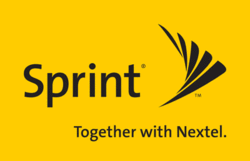As costly as monopolies are to our workers, our pocketbooks and our international competitiveness, oligopolies may be more costly. (Picture from the This is Money blog in the UK, where they know how to treat big business — with a little contempt and a big heaping pile of snark.)
I found that out how bad it is this month when I decided to leave the "monopolist" AT&T for the "competitive" cellular market.
It’s not competitive. This is an oligopoly. There are four players — AT&T, Verizon, Sprint, and T-Mobile. All are (or were) regulated monopolists in the past. They offer terrible pricing, abysmal customer service, and minimal selection.
Together they have shipped the U.S. to the back of the bus when it comes to the entire cellular market, with only one player (Apple will make it two) in the handset market and just one (Cisco — Lucent was bought by Alcatel of France) in the systems market.
But it’s on the customer level that you really feel it. In a competitive market, where you have a variety of spectrum re-sellers, and can bring your own handset to the party, you get a lot more service for a lot less money. Here the phones are crippled (deliberately), and in-store help is only allowed to sell (not help). As a result the data market is primitive compared to Europe or Asia. Workers aren’t able to gain skills from their jobs, either. They are only allowed to work from scripts.
I first tried to give AT&T this business. I went to a Cingular store and was told that, in order to even think of moving my home number to mobile I would have to call BellSouth myself. But you’re the same company, I said, you won’t help me? Nope. We walked out.
Verizon I knew was crippling its phones (I’ve written about it often enough) so I checked out T-Mobile. They have a nifty map on their Web site showing where their service is good, fair and poor. It showed barely fair at my house.
So it was off to the Sprint store.
We had to wait two hours before anyone would talk to us, at the
Sprint store on Moreland Ave. in Atlanta. Once we got to see someone,
we first had to endure a credit check. Once that was done, their
attitude changed radically. (We have good credit.) It took another hour
to get four lines and a plan giving us 700 shared minutes a month and
GPS service on my son’s phone (he gets lost).
Then disaster struck. My son lost his phone. (It was stolen at
school.) My daughter tried to get this reported to the store. She came
back in tears. I tried the Web. It wouldn’t take the password the store
had given. Finally I sat on hold for an hour on the phone, and by the
time I reached someone I let loose on the poor person. The account on
that phone was finally suspended. It had taken three hours.
Yesterday we went back to the store to get a new phone. Waited another
hour. Workers wandered around avoiding eye contact, went into the back
to play with cash registers, went to the bathroom, went into the back
of the store, went into a little office behind a glass wall in back of
the store. We were third in line! Another hour wasted. And when we
finally buy a new phone (for $170, the cheapest they had) I ask about
dropping the GPS. "We can’t do that. You have to do that by phone."
What? Why? I spluttered. My lovely wife tried hard to calm me down.
"And what’s most amazing," I finally said, "is you’re the best of
the carriers."
"We hear that a lot," the worker responded. It took another hour-long
phone call to change our plan, and I still had to sit through a
half-dozen attempts at up-sell.
And yes, Sprint is the best of a very bad lot.
What has happened, in this Administration, is that spectrum auctions were
corrupted so that the "big four" could achieve dominance in their
territories. Cut-outs, phony minority firms, and even big time Wall
Street shysters like Mario Gabelli were all in on it. When the hammer
came down, last year, it was a wrist-slap, and the auction results held.
The result is that spectrum is being hoarded just like bandwidth is
hoarded on wires, passed along with an eye-dropper, kept out of
service. America suffers as a nation. We don’t have to. We have the
weapon of antitrust at our disposal, and when the crooks of this era
are finally gone from Washington, I pray we have the good sense to use
it.
I don’t care what the carriers claim. It is our spectrum.













I agree with the generalities of this post, but what do you mean by one player in the handset market and one player in the systems market? Major handset vendors (by US sales) include Nokia, Motorola, Sony-Ericsson, LG, and Samsung. Infrastructure players include Nokia, Ericsson, and Motorola (Cisco is fairly peripheral to Wireless and Alcatel-Lucent is a very minor player in the US market).
I agree with the generalities of this post, but what do you mean by one player in the handset market and one player in the systems market? Major handset vendors (by US sales) include Nokia, Motorola, Sony-Ericsson, LG, and Samsung. Infrastructure players include Nokia, Ericsson, and Motorola (Cisco is fairly peripheral to Wireless and Alcatel-Lucent is a very minor player in the US market).